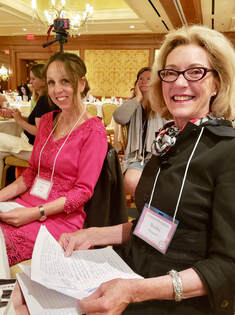
https://www.wyomingnews.com/opinion/guest_column/dillow-wyoming-women-take-on-the-world/article_8bc4909b-dc17-5c1f-ab3e-654d8be032eb.html
First woman to serve on a jury. First woman to serve as a bailiff. First woman to serve as a justice of the peace. First to become a statewide-elected official.
Look them up – their images portray them as grim-faced, stern women, separated from us by both years and photographic style. But don’t let this obscure the fact that these women were not two-dimensional characters. They cared deeply about improving their communities. The reasons why they were willing to break glass and pursue change led them to be passionate about imagining how a problem could be solved.
Maybe it isn’t just grim-faced sternness we see in those old photographs. Maybe it’s also unyielding grit.
One of the things I love about Wyoming – that sets it apart from many places I’ve lived – is how accessible change-making really is here. You don’t have to wait around for change to happen by accident. Belonging to an elite club of do-ers is unnecessary.
See a problem? You can literally decide to do something about it and then do that thing. It isn’t always easy or immediate, but a healthy dose of unyielding grit, handed down through generations, makes it possible.
I know because there is proof – from the earliest days of Wyoming’s existence to the present day, where Wyoming women are quietly (and sometimes not quietly at all) imagining ways to improve their communities.
The fourth annual Connect2Women conference was held last week in Cheyenne, and I was amazed, delighted and inspired by the many local women who shared their stories of a quest for change.
Heather Fleming and Kari Roden of the nonprofit WY Lit are accidental activists who came together to change how literacy skills are taught in Wyoming schools; while their work is just beginning, they’ve already proven themselves fierce advocates of a better way of doing business. Their advocacy brought the successful passage of Wyoming House Bill 297, requiring school districts to assess the specific skills predictive of third-grade reading proficiency. The ripple effects of improved literacy skills through evidence-based research and instruction will be staggering.
Valerie Colgate and Karen Fettig are ardent advocates for bringing awareness – and an end – to the devastating issue of human exploitation and sex-trafficking, which is an all-too-real problem in Wyoming and internationally. A global health professional, Valerie serves as a medical liaison for Destiny Rescue, regularly traveling from Wyoming to Cambodia to combat the effects of exploitation on girls, women and their communities. Karen Fettig works tirelessly within the state to bring awareness to this issue, partnering with law enforcement to hold workshops about identifying the warning signs of trafficking, exploitation and trauma.
Neither of these women set out to do this work originally, but the problem was simply too big to ignore. So, they didn’t.
Stacy Strasser founded the Unaccompanied Students Initiative because she couldn’t live with the status quo of homelessness in Wyoming. Her efforts to provide actual homes for adolescents without guardians so they can graduate from high school in a safe, consistent environment has led to a near-impossible level of community collaboration and generosity that is already making a difference for every single student served by the program. Stacy did not allow initial failure to deter her laser-focused vision of a better Wyoming.
Amy Surdam and her husband are reimagining how health care is provided in Wyoming through their acute care center, Stitches, a challenge so great that it seems insurmountable – until it isn’t. Their approach is both inventive and innovative, and has created statewide partnerships to provide telemedicine to previously underserved rural areas. Additionally, their partnership with LIV Health and Wyoming Breast Cancer Initiative will provide access to counseling for patients diagnosed with breast cancer (and their families) without the added stressor of hundreds of travel miles.
In our kitchen hangs a treasured piece of artwork made for my family by artist Amos Kennedy. On the backdrop of a Wyoming road map, he handset the words of Sojourner Truth and printed with a vintage letterpress: “If women want any rights more than they’s got, why don’t they just take them, and not be talking about it.”
Something about this sentiment pierces my heart. Just like Sojourner Truth knew in the 1800s, Wyoming women know today that change comes not from talking, but from doing.
No one must settle for the status quo here, and that is a treasured right we should never take for granted.
Elizabeth Dillow is a writer, photographer and graphic designer in Cheyenne who can be reduced to tears by stories of women changing the world. She can be reached at [email protected].




